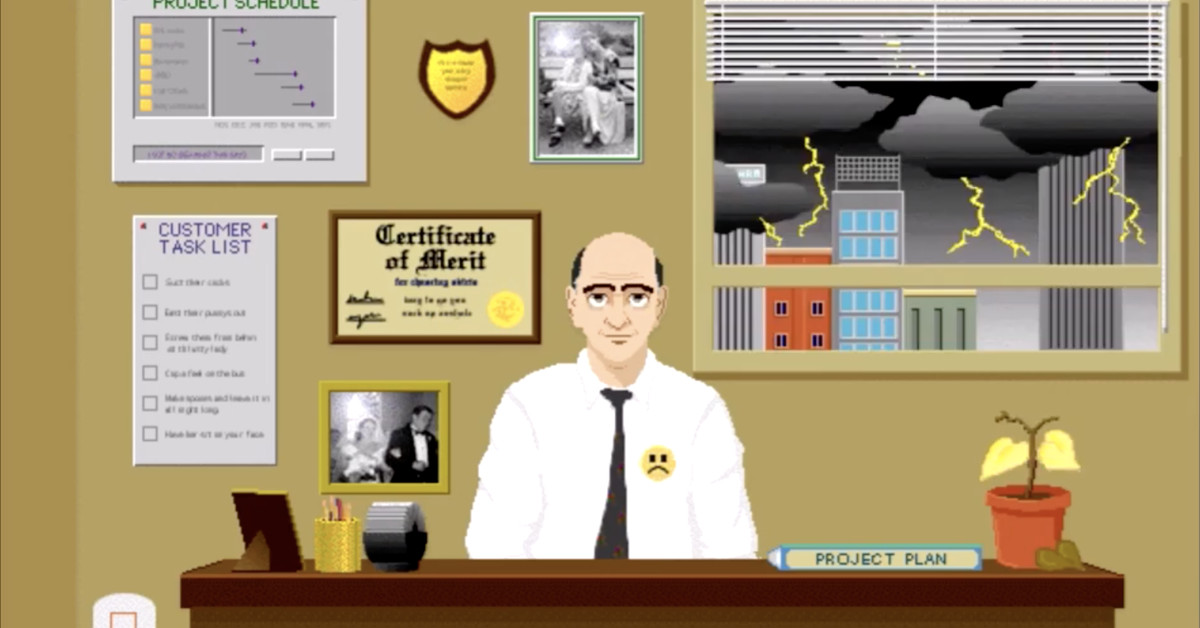
Popular “simulation games” like SimCity aren’t literally training players to run something like a city. But what would happen if they did? In the 1990s, SimCity studio Maxis tried to find out.
In an exhaustively researched essay at The Obscuritory, librarian and writer Phil Salvador recounts the fascinating history of Maxis Business Simulations — a short-lived studio that designed simulations of oil refineries, power grids, project management tasks, and other systems for businesses and government agencies. As Salvador puts it:
From 1992 to 1994, a division called Maxis Business Simulations was responsible for making serious professional simulations that looked and played like Maxis games. After Maxis cut the division loose, the company continued to operate independently, taking the simulation game genre in their own direction. Their games found their way into in corporate training rooms and even went as far as the White House.
Almost nothing they developed was ever released to the public. But their software raises questions about the role we want games to play in society.
The division (later spun off under the name Thinking Tools) was run by John Hiles, a simulation designer who had teamed up with Maxis earlier. Hiles had huge ideas for systems that made players question their ideas about the world — like its only widely released title, SimHealth:
He wanted players to have to explicitly state their beliefs about health care – about individual liberty, or the importance of community – then see if they could overhaul the American health care system in a way that matched their ideals. He wanted the player to have to examine their own ideology and understand what that ideology might look like as a real policy.
That was modest compared to the never-developed SimEnergy, which would have simulated the work and consumer choices of a power plant manager, then jumped forward by decades to see how they affected future generations. Or Race for the White House, which was supposed to simulate being a presidential campaign manager but be played like the adventure game Myst. Unfortunately, clients weren’t nearly as interested in these concepts, and Hiles’ studio foundered.
Salvador’s article touches on some of the most interesting parts of the games industry. Maxis Business Solutions’ fate mirrors plenty of studios led by visionary designers who couldn’t necessarily run a business, or who sold their companies only to find themselves taken apart by a predatory buyer. Meanwhile, a lot of these games’ history has been lost because of poor archival practices — exacerbated by bad blood between the studio and its employees, who (literally) burned their work in anger after being unceremoniously laid off.
Above all, though, it’s an in-depth examination of the “serious games” ethos. The team at Maxis was constantly struggling with the fact that almost any simulation rests on assumptions made by the designer, not objective facts about the universe. Their solution, it seems, was to acknowledge those assumptions and make players think through them. As Salvador puts it, “they were all sharing this wild idea together, trying to make games that weren’t just fun approximations of the real world but would actively challenge how we thought about it.”
In a fun postscript, an Ars Technica writeup of the article may have actually surfaced a copy of early Maxis Business Simulations game SimRefinery, previously assumed lost. Salvador’s Twitter feed leaves the story on a cliffhanger: “We’re waiting to see what happens with SimRefinery, so hang tight.”
